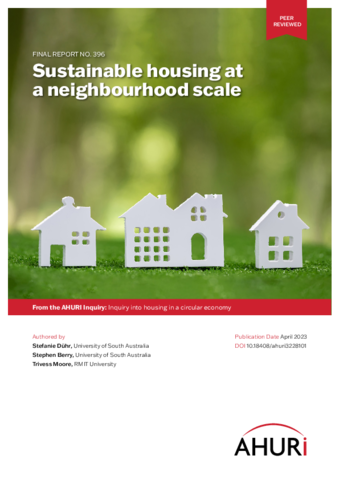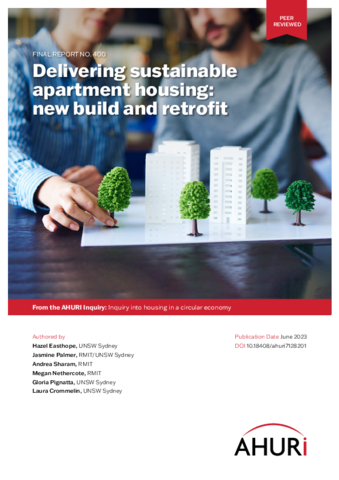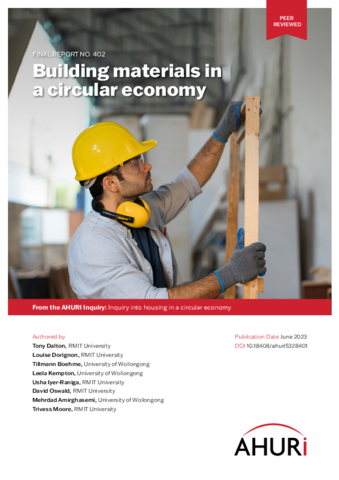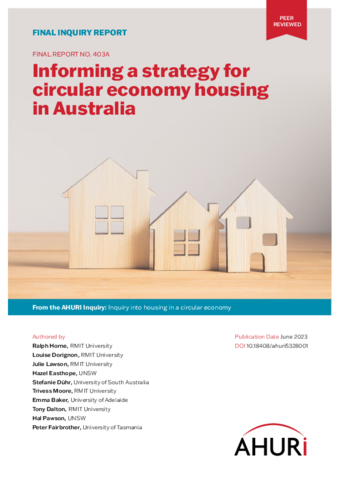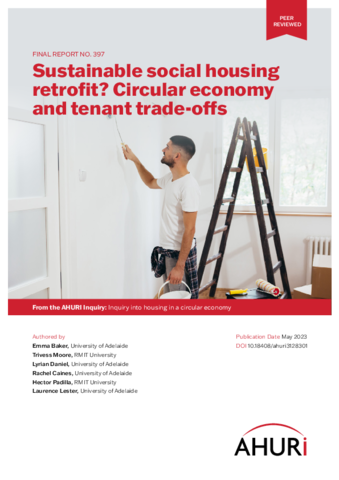From the AHURI Inquiry: Informing a strategy for circular economy housing in Australia
This research examines the preferences and trade-offs of tenants during social housing retrofit programs, particularly in regard to implementing circular economy (CE) practices. The study looks beyond the relatively narrow consideration of energy efficiency, to respond to the broader requirements of the social housing sector—to incorporate and balance tenant needs with provider mandates, budgetary limitations, and wider social policy.
Retrofitting, or upgrading, existing social housing stock has been proposed as a cost-efficient solution to concerns around energy efficiency, thermal performance, and quality issues.
The research found that households’ preferences for housing retrofit and upgrade options did not necessarily align with evidence of optimal retrofit priorities and do not align with the typical activities which receive government funding. For example, commonly provided retrofit measures (such as draft sealing) were not widely valued, while less common interventions that were less focussed on energy efficiency (such as a deep clean) were highly regarded by consumer households.
The objectives underlying retrofit programs are rarely explicit and vary greatly between stakeholders: social housing providers may be largely motivated to assist their tenants to avoid energy poverty; industry groups seem principally focussed on sustainability outcomes; and many tenants’ main motivation is wanting homes that are more liveable, efficient, clean and warm. These different, and often competing, objectives obviously limit successful outcomes.
Retrofit and quality improvements that are undertaken with a short term focus, based on whatever funding or opportunities are available at that point in time, constrains all stakeholders from longer term planning or strategic coordination, but also reduces the opportunity to use CE principles in retrofit activities.


